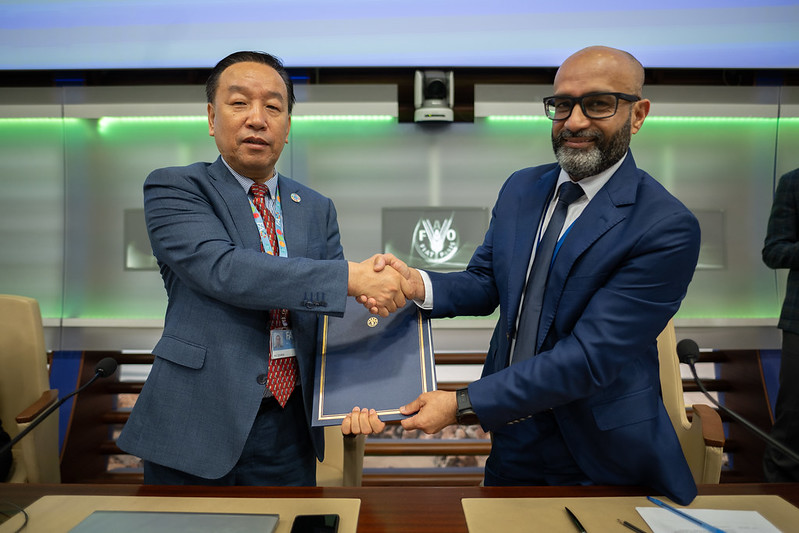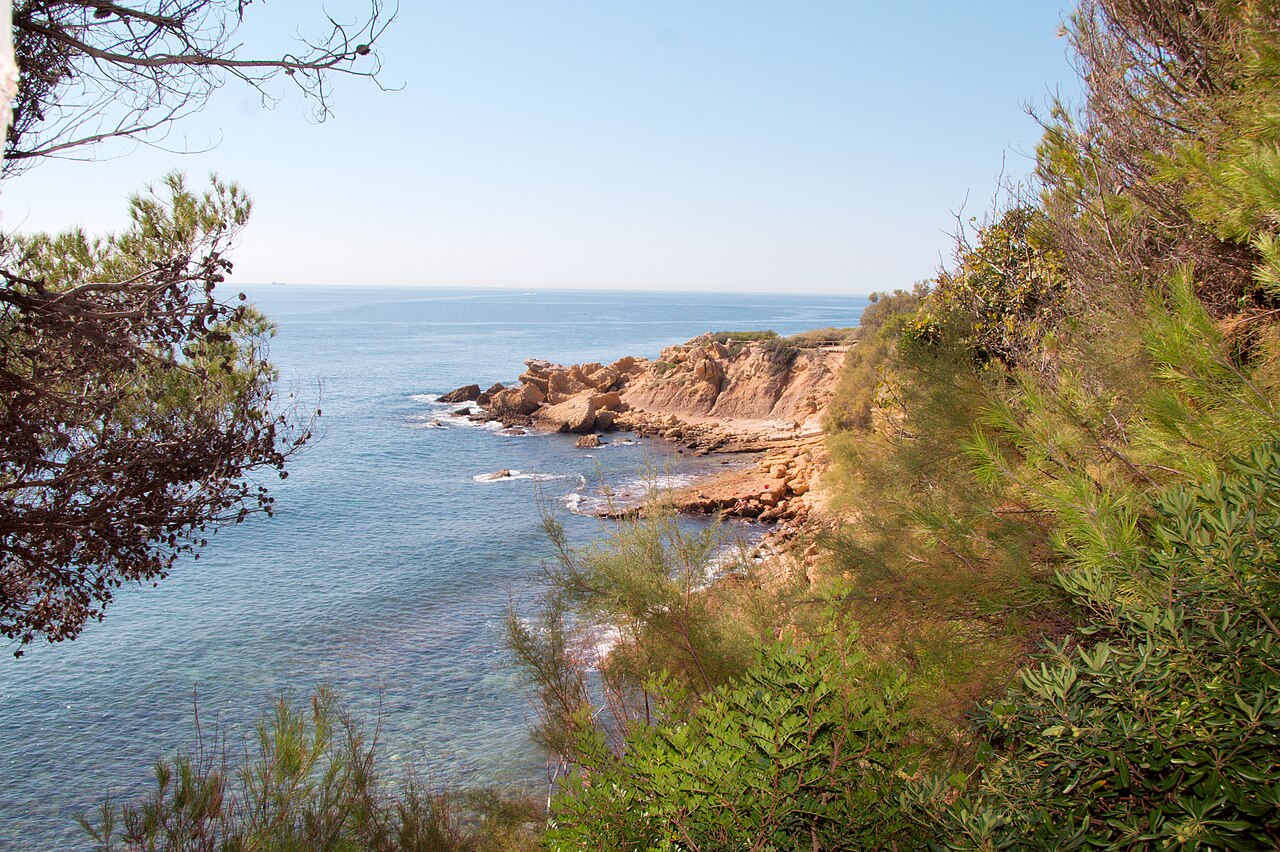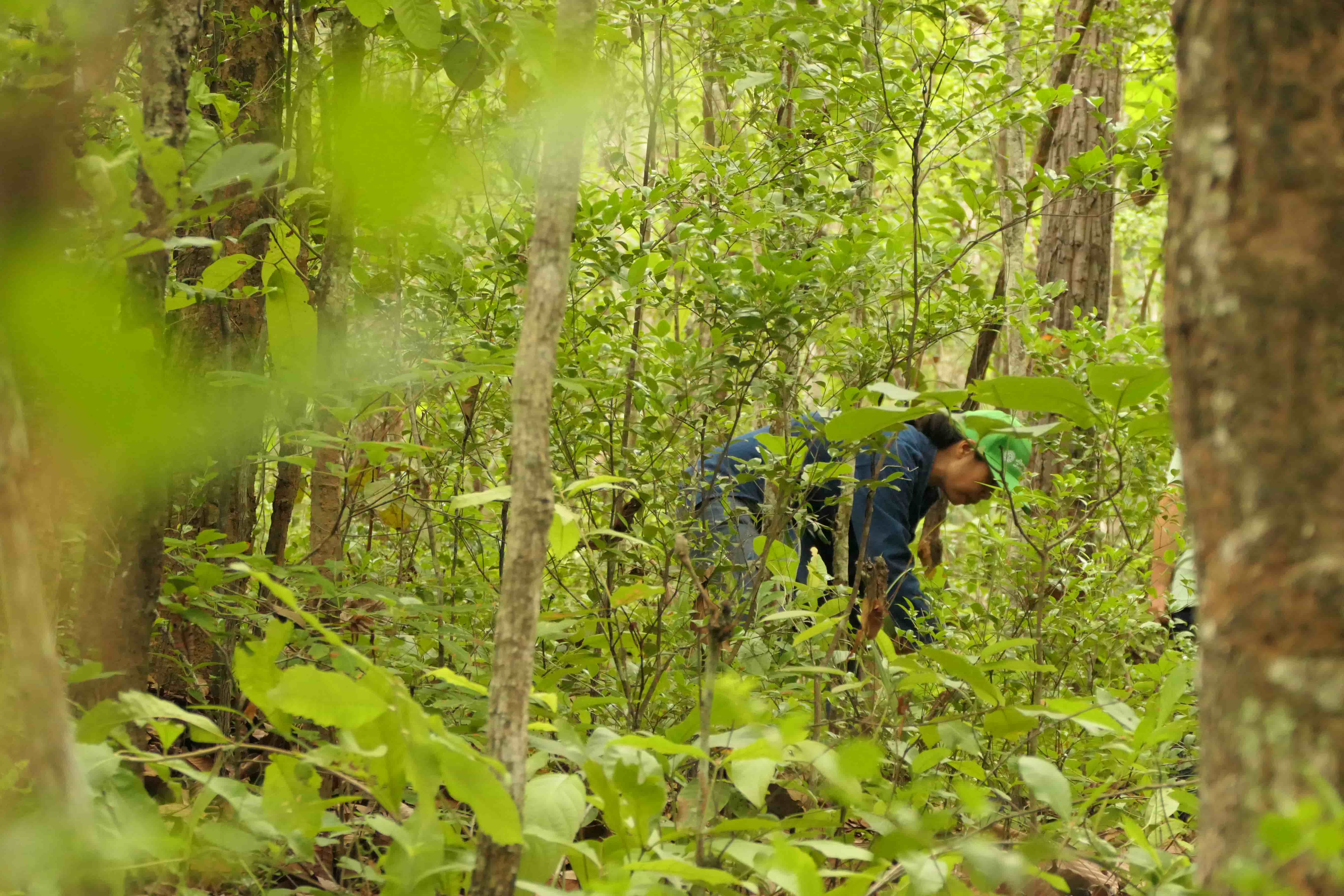IUCN Restoration Barometer documents extensive ecosystem restoration across 18 countries
Montreal, Canada, 12 December 2022 (IUCN) – The International Union for Conservation of Nature (IUCN) has today published its first Restoration Barometer report, documenting that investments of $26bn across 18 countries have brought 14 million hectares of degraded landscapes – an area about the size of Greece – under restoration.
The report details how 18 countries are using the Restoration Barometer tool to track progress on their restoration commitments under global agreements, which total 48 million hectares by 2030. It shows that restoration activities are currently ongoing in a total of 14 million hectares, thanks to a cumulative investment of $26bn from public and private sources. It also highlights the various benefits these restoration efforts bring for conservation and sustainable development. Detailed case studies in the report – e.g., on Mozambique’s National Mangrove Strategy; satellite use in Guatemala; and endangered species protection in Mexico – also reveal that through restoration efforts in these 18 countries, 12 million jobs were created and over 145 million tonnes of carbon were sequestered in 2022.
Endorsed by over 50 governments, the Restoration Barometer was developed by IUCN with the support of the German Federal Ministry for the Environment, Nature Conservation, Nuclear Safety and Consumer Protection. It is the only tool that is already being used by governments to track restoration and its benefits across all terrestrial ecosystems, including coastal and inland waters, and report on their commitments against global frameworks such as the UN Decade on Ecosystem Restoration, Bonn Challenge, Paris Agreement or 1t.org. It will also allow countries to track progress against restoration commitments under the forthcoming post-2020 Global Biodiversity Framework targets leaders will set at COP15.
“As countries commit to ecosystem restoration, like Canada did today through its ambitious Bonn Challenge pledge, the Restoration Barometer tool enables them to build a comprehensive picture of their progress, helping them to identify what is working, where and how, which leads to more impactful action and better targeted investments. This means restoration efforts can not only be maximised but fully sustained during this critical decade to save our natural world,” says Carole Saint-Laurent, Head of IUCN’s Forests and Grasslands Team.
Using the Restoration Barometer tool, countries record their restoration policies, modes of planning, monitoring systems and funding structures that make their efforts possible and ensure they will continue. They can then track the sizes of the areas under restoration, plus the corresponding climate, biodiversity and socio-economic benefits that result from the restoration programmes being implemented.
Next year, the Barometer will be further extended to include restoration efforts in kelp, seagrasses and shallow reefs, allowing users to report from ridge to reef. Looking ahead, the Restoration Barometer will also be made available for use by companies seeking to set and track restoration targets; 34 companies are currently piloting the tool in collaboration with the World Economic Forum and 1t.org. Next year, this new application will go live on the Restoration Barometer website, opening up opportunities for the private sector to transparently monitor company-wide restoration commitments.
Media contact:
Matthias Fiechter, IUCN Media Relations, +41 79 5360117, press@iucn.org
Supporting quotes:
Stewart Maginnis, Deputy Director General – Programme, IUCN, said: “To drive restoration ambition and action at the scale that is needed to make the Global Biodiversity Framework a success requires sound and credible information on how restoration is progressing on the ground and what impacts are being achieved for biodiversity, for climate and for economies. The Restoration Barometer tool fills this gap."
Christiane Paulus, Director, Directorate-General, Nature Conservation, Sustainable Use of Natural Resources, Nature-Based Climate Action, German Federal Ministry of the Environment, Nature Conservation, Nuclear Safety and Consumer Protection, said: “The Restoration Barometer supports governments to track progress on their restoration targets and to report to the UN Conventions efficiently and consistently on protecting and helping biodiversity to recover while also sequestering and storing carbon. This UN Decade on Ecosystem Restoration is critical to accelerate the restoration of forests and ecosystems and safeguard climate and biodiversity.”
Natalia Alekseeva, UN Decade on Ecosystem Restoration Coordinator, UN Environment Programme, said: "The UN Decade on Ecosystem Restoration can only succeed if we measure progress on the ground. This is where tools like IUCN’s Restoration Barometer are crucial. Countries have promised to restore 1 billion hectares - an area the size of China. But where is that restoration happening? And how successful is it? The Barometer is already and will continue to be essential in answering this question, and we anticipate close collaboration with the UN Decade’s monitoring platform, the Framework for Ecosystem Restoration Monitoring.”
Anita Diederichsen, WWF lead for Forest Landscape Restoration, said: “It is encouraging to see progress made by countries in their landscape restoration targets, as outlined in the 2022 Restoration Barometer report. The report provides critical insight that will be instrumental in increasing transparency and accountability. And it goes beyond the hectares to show the impact of restoration on people and the climate, a key part of the global restoration agenda. At WWF, we see the Restoration Barometer as an important tool to gauge progress on the Bonn Challenge and to support our own implementation actions in the many countries we operate in.”
Jim Hallett, Vice Chair and Past Chair, Society for Ecological Restoration; Vice Chair, Global Partnership for Forest and Landscape Restoration, said: "The Bonn Challenge and other global initiatives have stimulated national commitments to restore over 1 billion hectares of degraded ecosystems. The UN Decade on Ecosystem Restoration is helping to move from commitment to action, and the Restoration Barometer is an effective tool for marking progress."
Notes to editors:
The Restoration Barometer was first launched in 2016 as the Bonn Challenge Barometer. It was piloted in forest landscapes - including in Brazil, Rwanda, El Salvador, Mexico and the United States – to measure the success of restoration programmes and understand the hurdles to implementation and quantification of restoration benefits. Subsequently, the tool was applied by 22 countries. It has been endorsed by more than 50 countries.
In 2020, the Bonn Challenge Barometer was rebranded as the Restoration Barometer to reflect its core principles of flexibility and inclusivity, and to signify the extension of the Barometer beyond forest ecosystems. The new tool was piloted in 22 countries, and in 2021 it was expanded to include tracking across all terrestrial ecosystem types, including coastal and inland waters.
Though 22 countries submitted data to the Restoration Barometer in 2022, this report includes information from 18 of them as data from the remaining countries is still undergoing review by IUCN. All data submitted to the Barometer is validated by governments and reviewed by IUCN. A tier system is used across some indicators to ensure data integrity and reporting accuracy. Full submitted data from the Restoration Barometer is available for public access through the country dashboard.
The 18 countries included in the report are:
- Latin America: Colombia, Costa Rica, El Salvador, Guatemala, Mexico, Peru
- Africa: Cameroon, Ghana, Kenya, Malawi, Mozambique, Rwanda, Uganda
- Asia: Bangladesh, Sri Lanka
- Europe, Central Asia and the Caucasus: Kazakhstan, Kyrgyzstan, Tajikistan
To find out more about the IUCN Restoration Barometer, visit www.restorationbarometer.org.
Launch event at COP15:
The Restoration Barometer report launch will be celebrated at an event hosted by IUCN in Montreal, Canada on 14th December – if media at COP15 would like to attend the event, please email press@iucn.org



